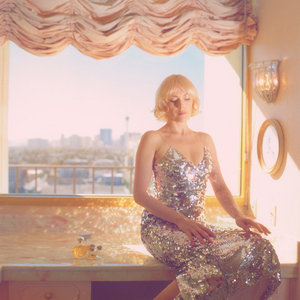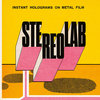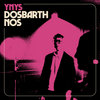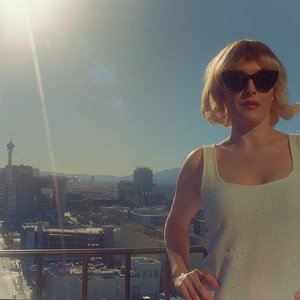Utopia by Gwenno

Forty-three years into her life, Gwenno Saunders has been many people. The disaffected Cardiff schoolgirl; the teenage Las Vegas dancer; the singer in indie pop group The Pipettes. There was a turn in a Bollywood film, a nightclub tour, a stint cleaning floors in an East London pub. Long before she would become an acclaimed solo songwriter in both Welsh and Cornish, a winner of the Welsh Music Prize, a nominee for the Mercury, a Bard of the Cornish Gorsedh, there were the days of Nevada, London, Brighton; of Irish dancing, techno clubs, messiness and chaos.
Utopia, Saunders’ fourth solo album, is an extraordinary exploration of all of these selves. If the singer regards her first three solo records — 2014’s Y Dydd Olaf, 2018’s Le Kov and 2022’s Tresor as “childhood records”, rooted in her upbringing, her parents, her formative identity, then Utopia captures a time of self-determination and experimentation. These are songs of discovery, of the years between being someone’s daughter and becoming someone’s wife and someone’s mother. They range from floor-fillers to piano ballads, via contributions from Cate Le Bon and H. Hawkline, and encompass William Blake, a favourite Edrica Huws poem, and the Number 73 bus. It is her finest work to date.
There is a sense of revelation to Utopia, a feeling markedly different to that of previous records. Having released three albums in Welsh and Cornish, 'Utopia' is Gwenno Saunders’ first album recorded predominantly in English, and presents a very different side to her life and songwriting.
“I feel as if I’ve written a debut record, because it’s a different language and it’s a different part of my life,” she says. “It’s about that point where I go out into the world on my own, which people generally write about first, and then get on with their lives. But it’s taken me so long to digest it — I needed 20 years just to make sense of things, and I realised the starting point of my creative life isn’t Wales, it’s actually North America.”
Saunders was a teenager when she left school to take up the lead role in Michael Flatley’s Lord of the Dance show in Las Vegas. For two years, she lived in an apartment complex with her fellow performers. They were seven miles from the strip, 40 teenagers with nothing much to do. There was a pool and a gym; drink, drugs, eating disorders. “Then every Saturday we’d go to this techno club called Utopia and just get completely spangled until Monday, when we had to go back to work,” she says.
The techno scene was a revelation to her then. “It was the happiness of knowing that you’re not alone,” she says. “It was the first time that I’d felt that togetherness as myself, not as a congregation in a church, or as part of my Mum’s choir. It was completely my own being that was connected to everything else.”
She named the record Utopia in part to honour the wonder of those nights and that time, but also to nod to the fact that each of the album’s 10 songs belongs to its own place and time. “In the original Greek, ‘utopia’ doesn’t mean the ideal place, it means ‘non-place’,” she says. “And that’s the point of the record as well.”
When she returned from Vegas to the UK, via a stretch in Europe, Saunders moved to London. “I didn’t know anyone or anything, I would just hassle people and answer adverts in The Stage magazine, and go to really silly auditions,” she says. “I was looking for people to hang out with and make tunes.”
She thinks now of that time — of Irish dancing in a Bollywood movie, and attempting to make club hits melding techno and Celtic music, as a distinct part of the early Noughties’ aesthetic. It was the days of musical mash-ups and the clumsiness of the early digital age. It was butterfly tops worn with sparkly low-slung jeans. “It was really disparate things being stuck together in the tackiest way possible,” she says.
This was a period of long nights out in the subterranean bars of Dalston, cigarettes and bottles of Efes, dancing, DIY gigs, the sense of the city sprawled out before you. In the thick of this time, Saunders joined the Brighton-based band The Pipettes, recording two acclaimed albums and acquiring a reputation for their spirited live sets, complete with coordinated costumes and all-male backing band.
For a time it was captivating, but by the end of the decade the scene was shifting. “Things became slicker and all of a sudden there were bands that were signed and there was a lot of money around,” she recalls. “It became more professional, and then it became more electronic, and then it became more branded, and that’s when it felt like ‘Where is this all going?’”
The Pipettes fell apart. Saunders took a job behind the bar at the Haggerston in Hackney and wondered what to do next. “There was so much nihilism around, suddenly, and no one really gave a shit about anyone,” she says. She decided to head back to Cardiff. “By 2011 I was quite traumatised from that whole experience,” she says. “I think so much about going back to Wales was finding the root of something again, and not retreating as much as healing, and reviving, and digging the earth, and turning it over. I just creatively needed to go back to the start.”
These are curious times to capture in song, but Saunders writes about them with a kind of fascination and tenderness. On London, 1757, tracing the migratory channel between Wales and the English capital; on 73, the surprise of learning of her family’s roots in Dalston; on St Ives New School — the first track written for this record, an exploration of creativity and motherhood. And on the unbridled Dancing on Volcanoes she conjures the wonder of nights out and the relationships we forge along the way.
Utopia began quite differently to its predecessors. First came the realisation that in order to capture this specific time in her life she would need to use English. “I think the way I’ve managed to write in English is by acknowledging that I can’t translate a lot of memories,” she says. “I’ve found that idea really important to explore. I think if I’d just stayed in Wales, and I hadn’t lived anywhere else or experienced any other culture then it would be really different. I would’ve made records in Welsh, but I left home at 16.”
Up until this point, Saunders’ songs had also always started electronically. On Utopia, she began each song on piano — the one exception is album closer, Hireth, written on harp. In part, she saw her return to piano — an instrument she has played since childhood, as a reflection of her shifting relationship with sound. But it was also a way to develop her songwriting, to explore the idea that songs that “perhaps can’t be made by a machine, that can only be made by human experience, have a far more potent value.” She took a similar approach to recording — the album set down in her living room, live, with her band, and produced once again by her long term collaborator, Rhys Edwards.
To look back over this period of her life has been a strange sensation for Saunders. “I feel compelled as a songwriter to keep digging it all up,” she says. “Everything’s a diary entry for me. And in writing about all of this I’ve remembered the chaos of myself.”
It is an album that spans 25 years. “All of adulthood,” she points out. “You get to this point and you go ‘God, that quarter of a century went fast.’ But I want to acknowledge it, and respect it and say, for better or worse, all of that happened.”
Tracklist
| 1. | London 1757 | |
| 2. | Dancing On Volcanoes | 5:04 |
| 3. | Utopia | |
| 4. | Y Gath | |
| 5. | War | 4:51 |
| 6. | 73 | |
| 7. | The Devil | |
| 8. | Ghost of You | |
| 9. | St Ives New School | |
| 10. | Hireth | |







